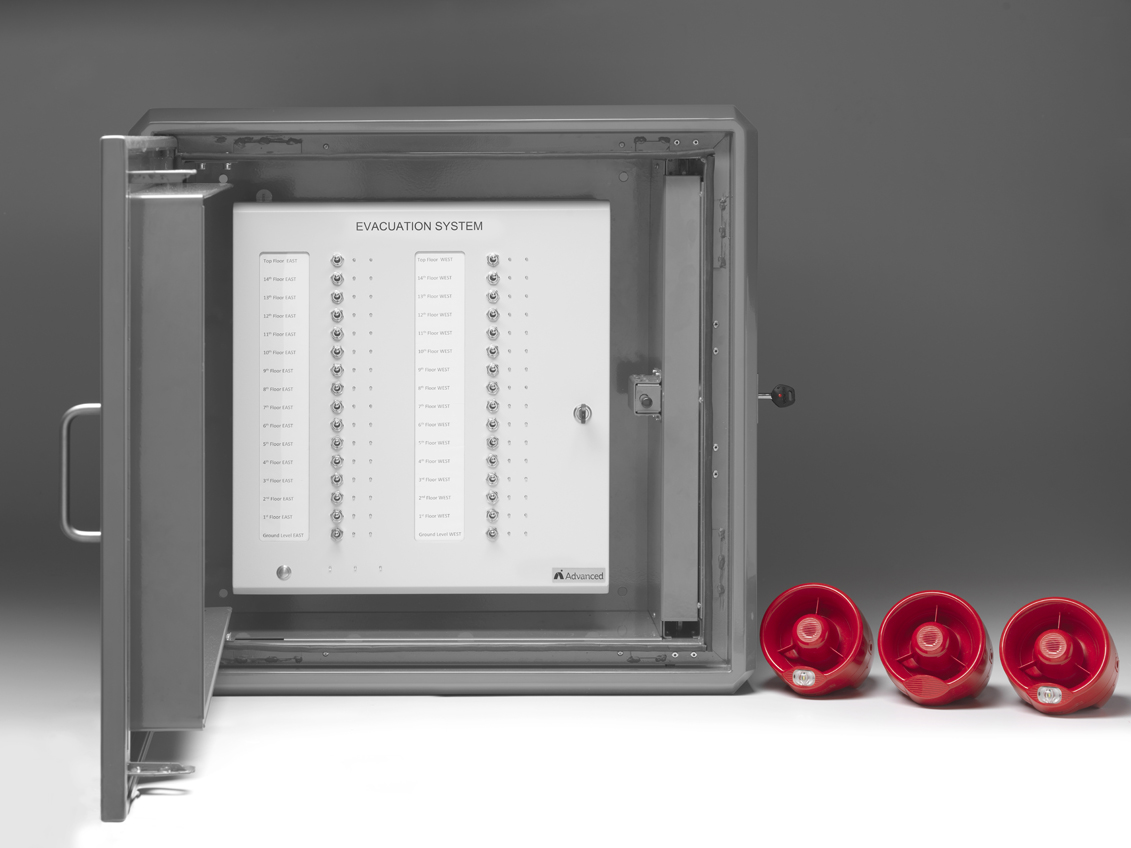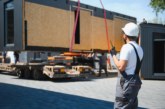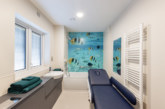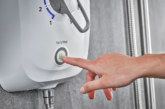
Fire protection solutions manufacturer, Advanced, is supporting the new Building Safety Regulator’s ‘Be Ready’ campaign, which calls on industry to prepare for the new building safety regime, with the first step requiring those responsible for high-rise residential buildings in the UK to register with the Regulator.
The Building Safety Regulator (BSR) was established to protect residents in high-rise buildings from unsafe building practices in England in response to the Grenfell Tower fire. Aimed at owners and managers of high-rise residential buildings the ‘Be Ready’ campaign highlights their new legal duties. It also calls on those responsible for the safety management of higher-risk buildings to prepare for a new wave of regulatory change to ensure they are ready to step up and comply.
Under the Building Safety Act, high-rise residential buildings which are 18m or taller are defined as ‘higher risk’. Those responsible for high-rise residential buildings in the UK must take note that registering buildings with the new Building Safety Regulator is a legal requirement and owners and managers who have not complied by October 2023 will be investigated and may be prosecuted.
These measures build on the Government introducing a package of improvements last year to further strengthen and clarify Building Regulations and fire safety guidance as part of wider reforms to building safety. In June 2022 updated Part B of the Building Regulations made it mandatory for all new-build residential buildings over 18m in England and Wales to have an evacuation alert system.
Amended Part B is designed to meet recommendations from Phase One of the Grenfell Tower Inquiry. Currently the Part B requirement for an evacuation alert system only covers new-build, high-rise residential buildings. However, since the Grenfell Tower Inquiry also recommends evacuation alert systems for high-rise residential buildings “already in existence”1, further regulation may follow so building owners and managers should familiarise themselves with evacuation alert systems in preparation.
 Shaun Scott, Applications Engineer for evacuation alert systems at Advanced, said: “We fully support the ‘Be Ready’ campaign and encourage owners and managers of high-rise residential buildings to register with the Regulator. These buildings are deemed as ‘higher risk’, so it is vital to take all the necessary measures to protect their residents. Given the recommendations of the Grenfell Tower Inquiry owners and managers of high-rise residential buildings — whether existing or new-build — should be installing evacuation alert systems in their properties to protect their residents in preparation for a new wave of regulatory change on the horizon.”
Shaun Scott, Applications Engineer for evacuation alert systems at Advanced, said: “We fully support the ‘Be Ready’ campaign and encourage owners and managers of high-rise residential buildings to register with the Regulator. These buildings are deemed as ‘higher risk’, so it is vital to take all the necessary measures to protect their residents. Given the recommendations of the Grenfell Tower Inquiry owners and managers of high-rise residential buildings — whether existing or new-build — should be installing evacuation alert systems in their properties to protect their residents in preparation for a new wave of regulatory change on the horizon.”
An evacuation alert system is vital to help fire and rescue services inform residents of a change in evacuation strategy during an incident. These systems give firefighters an additional tool to use on the ground, alongside existing methods of evacuation, improving safety for residents.
To comply with the amended Part B, an evacuation alert system should be provided in accordance with the recently revised BS 8629 Code of Practice for the design, installation, commissioning, and maintenance of evacuation alert systems for use by fire and rescue services in England. Advanced’s EvacGo evacuation alert system offers peace of mind as it was designed alongside fire industry leaders specifically to meet the recommendations of BS 8629.
EvacGo has been developed to support any evacuation strategy chosen by the fire and rescue service and operates completely independently of fire detection systems. The panel combines EN54-2 and 4 approved MxPro 5 technology with clear, easy-to-use manual controls to ensure firefighters can quickly and effectively identify and operate alert sounders to support the safe evacuation of tall residential buildings.
EvacGo provides a simple, at-a-glance overview of a building’s evacuation alert zones, along with LED indication and manual toggle-switch controls for operating evacuation alert devices in each zone. The panels are available in 8, 16, 24 or 32 ‘fire fighter evacuation alert area’ variants and are expandable from 1 to 4 loops — or even further, when using Advanced’s highly robust, fault-tolerant network.
Furthermore, the EvacGo panel is housed inside a security-rated enclosure meeting the STS 205 class BR2 security rating with patented BS EN 1303-compliant lock. This minimises tampering and restricts access to fire and rescue service personnel only, who are able to access the controls using a patented key, as stipulated in the BS 8629 code of practice.
The evacuation alert panel works equally well within hard-wired, radio and/or hybrid systems, and commissioning and servicing are quick and easy using Advanced’s virtual PC tool. EvacGo also features built-in battery back-up options of up to 17 ampere-hours, to meet the BS 8629 Code of Practice recommendations.
The Advanced product portfolio includes complete fire detection systems, multiprotocol fire panels, extinguishing control, false alarm management and reduction solutions as well as emergency lighting.
To register a high-rise residential building visit here: https://www.gov.uk/guidance/register-a-high-rise-residential-building
Advanced’s handy pocket guide to the revised BS 8629 has been produced to help people understand what they need to do to comply and is downloadable at: https://www.advancedco.com/app/uploads/2023/06/Pocket-Guide-to-BS-8629-IF.pdf
- Grenfell Tower Inquiry Phase 1 Report, Vol 4, June 2017, Page 777 section 33.22d. https://assets.grenfelltowerinquiry.org.uk/GTI%20-%20Phase%201%20full%20report%20-%20volume%204.pdf
Header image: EvacGo panel, enclosure and sounders face on









